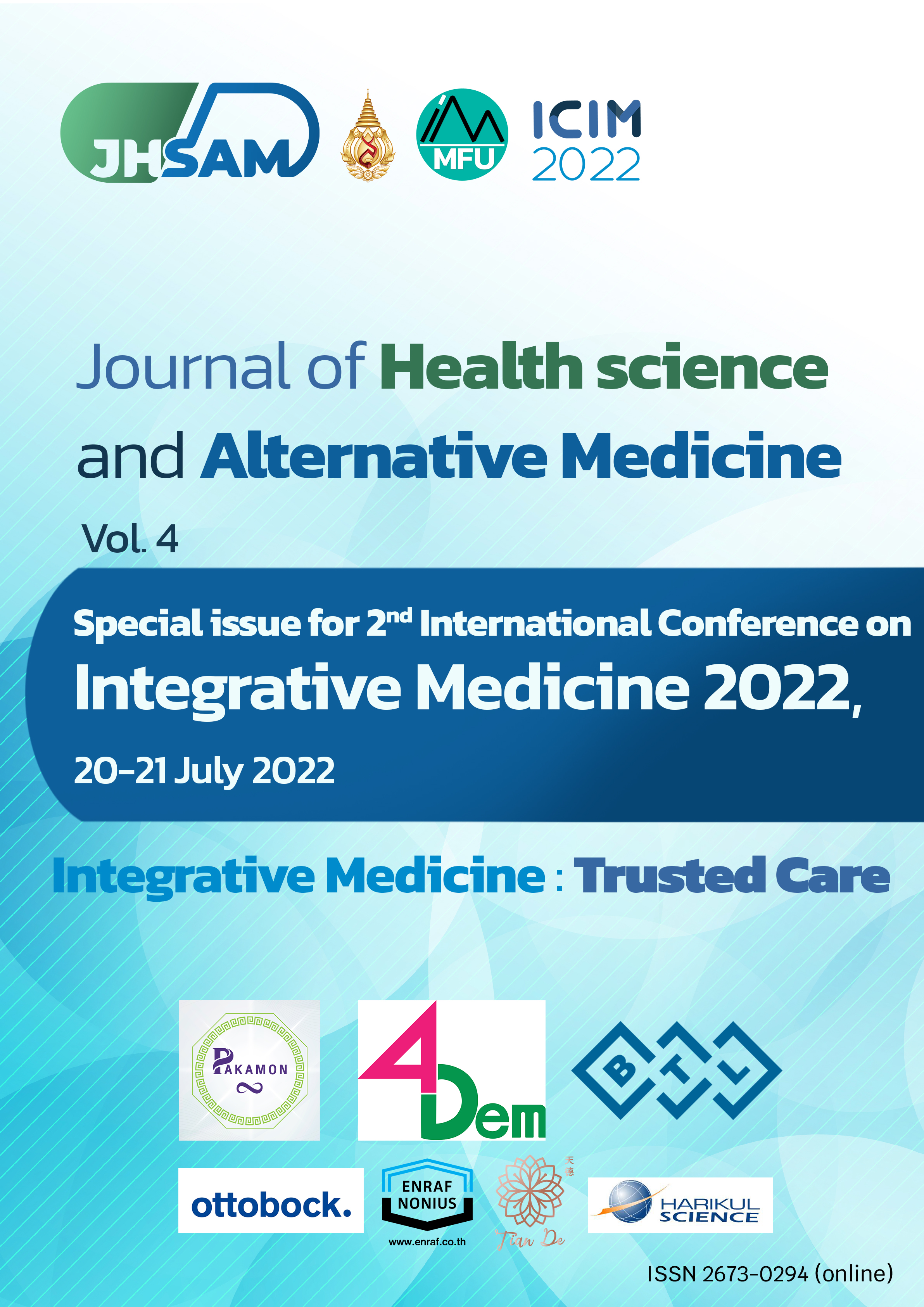A18. The Anti-cancer Effects of Oxyresveratrol on Ovarian Cancer Cell Lines via Negative Regulation of AKT Activation Status
Main Article Content
Abstract
Introduction: Oxyresveratrol has been reported that inhibits the survival signaling and has anti-cancer effects on various cancers. However, the difference in the cancer genotype typically influences the responsiveness to anti-cancer agents. Therefore, comparative observation for the response sensitivity to Oxyresveratrol should be determined. Oxyresveratrol was tested in different ovarian cancer cell types for its cytotoxic effects, the expression level of pro-apoptotic and anti-apoptotic proteins, and the inhibitory influence on survival signaling pathway.
Objective: To investigate the anti-cancer effects of oxyresveratrol on different types of ovarian cancers and identify the possible mechanisms of oxyresveratrol.
Methods: Oxyresveratrol was tested in three different ovarian cancer cell lines, A2780, SKOV3, and TOV21G. Cytotoxic effect was evaluated by MTT, and western blot was used to determine the level of pro-apoptotic proteins, anti-apoptotic proteins, and key molecules in survival signaling transduction. Cisplatin was used as a standard chemotherapy to determine the efficacy of the combinational treatment.
Results: Oxyresveratrol induced cell apoptosis in A2780 and SKOV3, reduced anti-apoptotic protein levels, and activated the expression of pro-apoptotic proteins. Moreover, oxyresveratrol inhibited phosphorylation of AKT and PDK-1 without any effect on the phosphorylation status of ERK1/2. In combination with cisplatin, oxyresveratrol amplified the efficacy of the drug to induce cell death in SKOV3, generally resistant to cisplatin.
Conclusion: Oxyresveratrol inhibits cancer cell apoptosis via reduction of PI3K-AKT transduction, and that decreases the level of anti-apoptotic proteins and activates cell apoptosis. Moreover, oxyresveratrol combined with a standard chemotherapy can amplify the death-inducing efficacy in resistant cells.
Article Details

This work is licensed under a Creative Commons Attribution-NonCommercial-NoDerivatives 4.0 International License.
JHSAM publishes all articles in full open access, meaning unlimited use and reuse of articles with appropriate credit to the authors.
All our articles are published under a Creative Commons "CC-BY-NC-ND 4.0". License which permits use, distribution and reproduction in any medium,
provided that the original work is properly cited and is used for noncommercial purposes.
References
-


